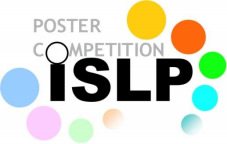 Your students are invited to enter the ISLP Statistics Poster Competition for 2012-2013.
Your students are invited to enter the ISLP Statistics Poster Competition for 2012-2013.
The theme for the 2012 – 2013 competition is Agriculture.
Entry is free. Posters are to be prepared in teams of two or three students for an investigation into an issue of interest using the statistical enquiry cycle on any topic within the general theme “Agriculture” (for example, agriculture and domesticated animals/food/industry/urban development etc.).
Data used can be collected by students or be previously published by someone else. If the data is published, the source must be cited in the poster. Posters must be the original design and creation of students. The poster must be on one single sheet, one-sided with maximum size A1. Maximum file size is 2 MB.
Posters must not contain any information about students or schools that prepared them. All entries become the property of the International Statistical Institute (ISI) and cannot be returned. By submitting a poster, students give permission for their work to be displayed at various ISI conferences, special events, in publications and promotional material, and in electronic format on the Internet.
There is further support material available on the International Statistical Literacy Project website, including guidelines for making a statistical poster, judging criteria and links to the ISLP registration form and on Facebook
The competition is divided into two age categories:
- students born in 1997 and younger [approximately Year 7 – 10] and,
- students born in 1994 and younger [approximately Years 11 – 13]
Prizes for National Winners will be awarded to the best posters in each age category.
1st Prize in each age category is $500
We thank our sponsors – AGResearch, New Zealand Statistical Association, NZAMT, University of Waikato and University of Auckland – Department of Statistics – for their support.
Important dates
- Preparation of posters in schools: Term 4 2012 and Term 1 2013
- Submission of posters to National Coordinator: 29 March 2013
- National Winners Announced: 1 May 2013
- International Winners Announced: ISI 2013 Hong Kong
For further information contact:
National Coordinator Dr Sashi Sharma,
Faculty of Education
University of Waikato
Private Bag 3105
Hamilton 3240


 Your students are invited to enter the ISLP Statistics Poster Competition for 2012-2013.
Your students are invited to enter the ISLP Statistics Poster Competition for 2012-2013.